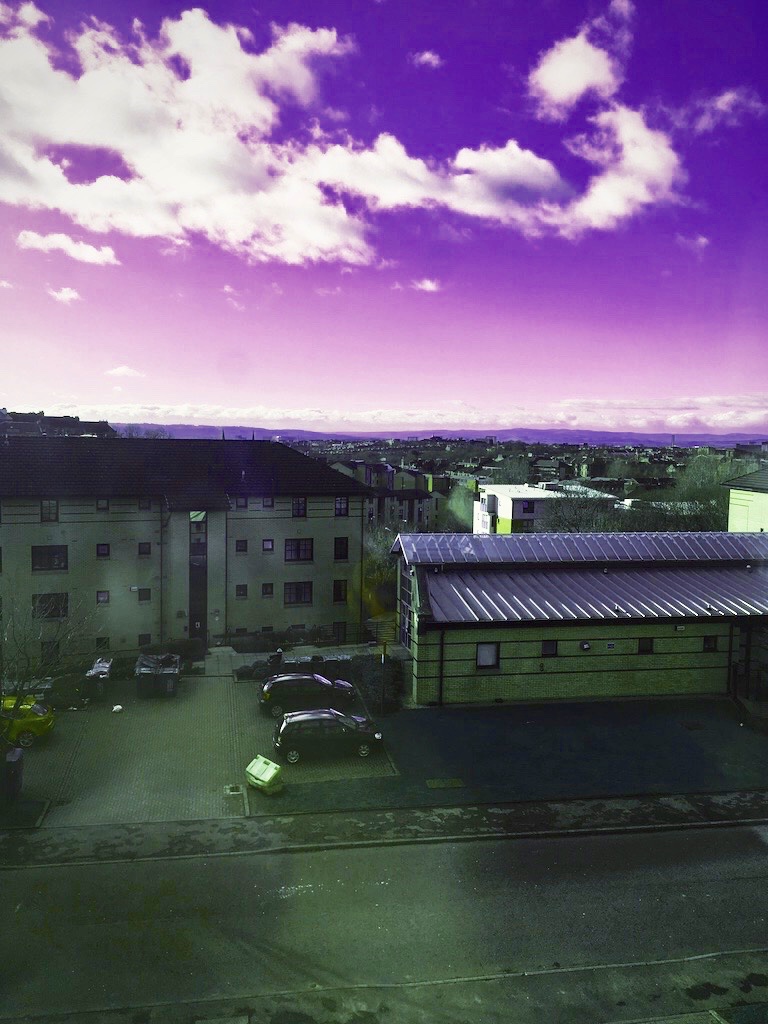[Written by Tiarna Meehan (she/her)]
[Image Credits: Joy Dakers (she/her)]
My home in Norfolk is an exact paragon of rural, a neverending expanse of pasture and wheat fields—a place where it’s easier to find sugar beet than Wi-Fi signal. The village population lies just north of 500 people, within it there’s only a parish church and a small post office. Upon moving to university my idea of what I called home shifted from one village to another: Murano Street Student Village. 360 miles apart, these locations couldn’t be more dissimilar in nature if they tried. With the passing months the occasional unfortunate pheasant scattered throughout the Norfolk lanes was replaced with Tennent’s cans littering the Murano pavements. The passing tractors down the winding roads soon became impatient Uber drivers on their way into town. It was the epitome of social life, a sought after utopia for students.
The microcosm that is Murano was surprisingly uniform on arrival as students filtered through the reception carrying their keys and token student starter packs. Enduring the cascade of stairs up to the top floor flat I was met with a panoramic view of the village. Towers of cardboard boxes congregated the car park brimming with unnecessary kitchen utensils and clothes too cold for the unanticipated Glasgow winters. Upon entering my room I was greeted by brash blue bedding—which was jarring against the white wash walls. It couldn’t help but feel cell-like yet ironically it came with unimaginable freedom. Within weeks the rooms became unrecognisable. My flatmate’s bedroom was like stepping into an antique emporium: porcelain figurines of baby heads next to stacks of records and hardback literature classics on top of old worn suitcases, the type you would see at train stations in wartime films. The walls were clad in Talking Heads and The Smiths posters alongside old letters and tea-stained postcards. Only the regulated layout gave hint to the prior appearance.
Stumbling through the village between block parties and flat pre drinks it became apparent that everyone had done the same, each room an embodiment of character. In one, bottles of Buckfast were lined up, they stood militant in order like an ode to the livers ruined. A mosaic of artwork and disposable photographs from an ever-mentioned gap year covered the walls in another. All items a clue to the temperament of the occupant: a keyboard, an easel, a skateboard. My favourite room was an observatory, room 11, an astral projection of violet and cyan flooded the ceiling and columns of golden celestial decorations adorned the magnolia walls, all alluding to the owner’s avidity for stars. Kitchen notice boards were a shrine of flat relics, plastered with takeaway menus, event posters and failed cleaning rotas of a hopeful fresher. Yet amongst the homemade ashtrays and unwashed dishes lay a deeper meaning; in spite of the year long expiration date everyone had sought to make Murano their home.
The sense of community in Norfolk was ubiquitous, it was shown through the trusting nature of market stalls on doorsteps; bundles of wild flowers and trays of quail eggs lay alongside jam jars dressed in red gingham covers, their contents a sweet mixture of the fruit once embellished in the nearby hedgerows, only asking in return for a donation of loose change into a rusty watering can. However with this geographical isolation came insular ideology, manifested through the casual lewd comments between gulps of a pint in the local town’s pub or increasing cases of homophobia in schools. So there was a refreshing social adjustment with moving to Glasgow; the city was progressive, which made for an easy acclimation. It wouldn’t take long until I’d become accustomed to the Subway system or remember to buy alcohol before 10pm. Only when I’d catch my location on Snapmaps would I be reminded I was quite far from my previous home.
Following the whirl of final assessments and Flat-mas celebrations it was time to return to Norfolk for Christmas break. After a 7am start, five trains and multiple meal deals, the scenery from the train window faded to the familiar patchwork of crops, the abyss of home.
Yet I couldn’t help but realise that once you move from a place, returning to it doesn’t feel quite the same as before. It’s an emotion hard to categorise but it felt as if time had been static since I left. Nothing had changed. The same people in the same jobs going out to the same bars on Friday nights. As I passed the alleyways where my friends and I would drink cheap wine in the summer evenings and the library where we’d procrastinate after college I was met with an overwhelming surge of nostalgia, that said, it was short lived as I fell back into the routine of home.
On my final night in Murano I heard the loaded dwell of the last party as the ambience of clinking bottles flooded through the open window. There’s something quite melancholic about being in an empty room surrounded by boxes of your possessions. Although the prospect of a better location and cheaper rent was alluring, something about leaving Murano was saddening and everyone felt it. It signified something larger: moving away, again, from a place we’d established as home. In a cyclic nature, rooms were cleared, goodbyes said and now the flats lie barren once again waiting for the next wave of students to make it their home.

